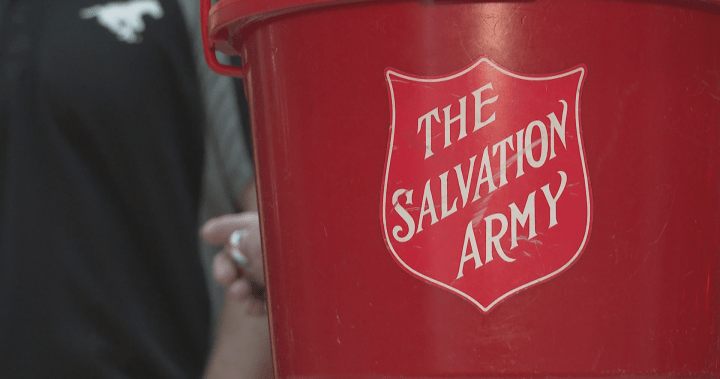The Salvation Army’s Calgary branch is facing a significant shortfall in its annual Christmas Kettle Campaign, having raised only $250,000 of its $850,000 target as of a recent Saturday. This fundraising challenge isn’t unique to Calgary; the organization is experiencing similar difficulties nationwide, achieving only about 50% of its overall goal. The primary culprit for this funding gap is attributed to the ongoing postal strike, which has disrupted the flow of donations traditionally received through the mail. This disruption has prompted the organization to urge the public to contribute through alternative methods, such as donating directly at the iconic red kettles stationed throughout communities or utilizing the online donation platform. The success of the Christmas Kettle Campaign is critical for the Salvation Army’s ability to provide essential services to vulnerable populations across Canada.
The Christmas Kettle Campaign serves as a vital lifeline for over 1.9 million individuals across Canada who rely on the Salvation Army’s diverse range of support services. These services encompass a wide spectrum of assistance, from providing basic necessities like food and shelter to offering crucial programs that address addiction, poverty, and other complex social challenges. The funds raised through the campaign directly translate into tangible aid for those struggling with homelessness, food insecurity, and various other forms of hardship. The Salvation Army’s commitment to restoring hope and dignity to marginalized communities is deeply intertwined with the campaign’s success, ensuring that individuals and families receive the support they need to navigate difficult circumstances and rebuild their lives.
The shortfall in donations has profound implications for the Salvation Army’s capacity to deliver essential services, potentially compromising its ability to meet the growing demand for assistance. The organization has witnessed a dramatic surge in the number of individuals seeking help for the first time, with a nearly 60% increase in first-time food bank users compared to the previous year’s 43%. This escalating need underscores the urgency of the fundraising campaign and the potential consequences of not reaching the target goal. Reduced funding could lead to service cuts, longer wait times for assistance, and an overall diminished capacity to address the escalating needs of vulnerable populations.
The Salvation Army’s food bank services, in particular, are experiencing unprecedented demand, reflecting a broader trend of increasing food insecurity within the community. The significant rise in first-time users highlights the economic challenges faced by many individuals and families, potentially driven by factors such as inflation, rising housing costs, and job insecurity. The food bank serves as a crucial safety net for those struggling to afford basic groceries, ensuring they have access to nutritious meals and preventing them from falling deeper into poverty. The strain on these services underscores the importance of community support and the role of the Christmas Kettle Campaign in ensuring that the Salvation Army can continue to provide this essential resource.
The ongoing postal strike poses a significant obstacle to the Salvation Army’s fundraising efforts, disrupting the traditional flow of donations through the mail. This reliance on mail-in contributions has left the organization vulnerable to unforeseen disruptions, highlighting the need for diversified fundraising strategies. While the strike undoubtedly presents a challenge, it also serves as an opportunity to explore alternative avenues for collecting donations and engage the community in new and innovative ways. The Salvation Army’s call for donations at physical kettle locations and through its online platform reflects a proactive approach to adapting to the changing circumstances and ensuring the campaign’s continued success.
As the Christmas Kettle Campaign approaches its December 24th deadline, the Salvation Army faces a critical period in its fundraising efforts. The remaining weeks are crucial for securing the necessary funds to meet the growing demand for services and ensure the organization can continue to provide vital support to vulnerable communities. The combined impact of the postal strike and the increased need for assistance underscores the urgency of public support and the importance of contributing to the campaign through any available means. Every donation, regardless of size, plays a crucial role in helping the Salvation Army reach its fundraising goal and fulfill its mission of providing hope and dignity to those in need.

